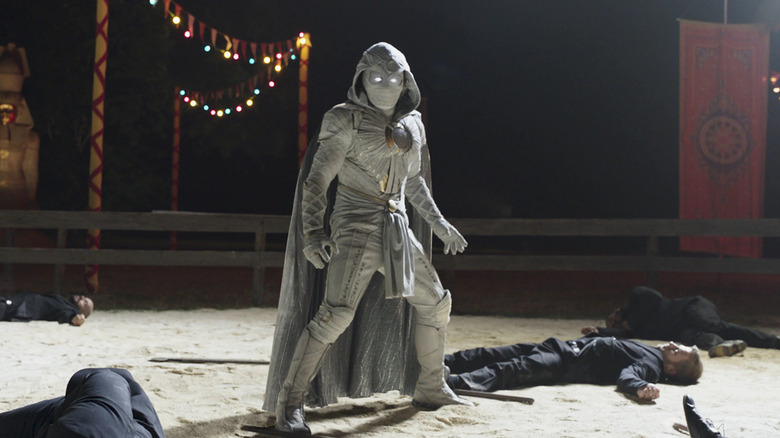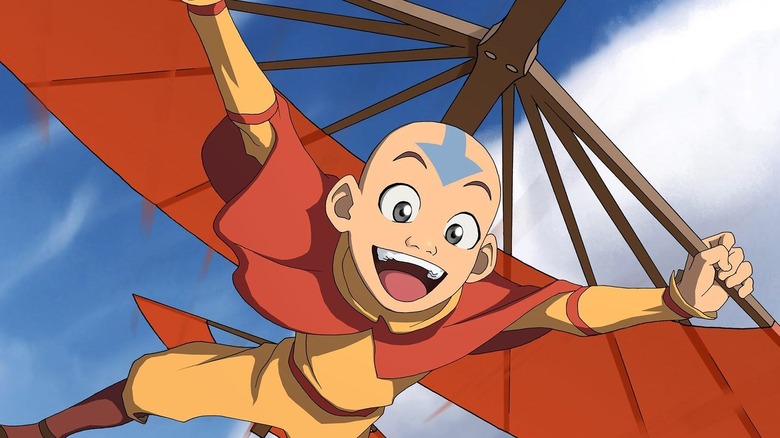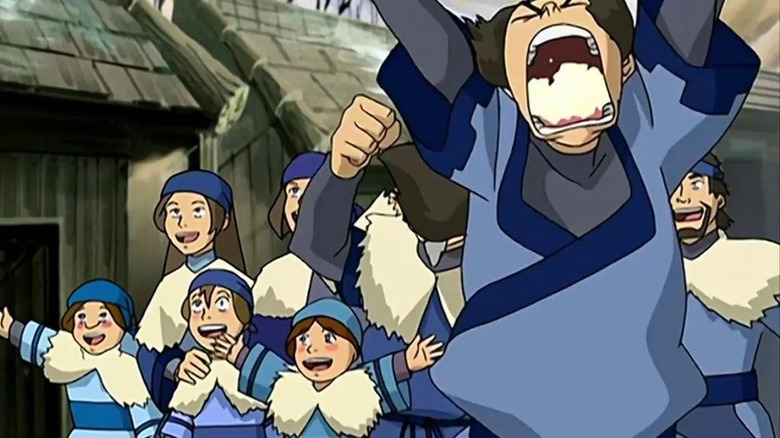We Need To Talk About Moon Knight's Great Anime Joke
What exactly is anime? Technically, it is just the Japanese word for "animation," but as the medium continues to grow in popularity around the world, making waves at the box office, more and more animators worldwide take inspiration from Japanese titles in their work. This asks an important question: what exactly makes something anime? Is it just an aesthetic? A series of tropes? Is it a geographical location or nationality?
We have seen many American cartoons outsource their animation and direction to Japanese studios, even in the '70s and '80s. More recently, Japanese studios have produced movies or shows based on American franchises mostly for American audiences. Are those anime? How about an episode of an American cartoon made by a guest Japanese animator, like Masaaki Yuasa making an episode of "Adventure Time"? Is that considered anime, or is the term just a scapegoat meant to gatekeep the medium?
Of course, this is a pointless debate that changes absolutely nothing. What matters is that this debate has been raging at least for the better part of two decades, and one of the shows often caught in the middle of the argument is "Avatar: The Last Airbender," a show popular for its anime-inspired world and visuals. Just when you think the debate was over, new fuel is added to the fire, and it comes from the unlikeliest of sources: Marvel's newest streaming series, "Moon Knight."
This post contains minor spoilers for the first episode of "Moon Knight."
"You mean the anime?"
The first episode of "Moon Knight" introduces us to Oscar Isaac's Steven Grant, a shy, hopelessly nerdy gift-shop worker at a London museum with an affinity for ancient Egypt and absolutely no clue what the hell is going on most of the time.
That is until he starts figuring some things out, like the fact that he (or some version of him) has an enemy: Ethan Hawke's Arthur Harrow, who Hawke himself calls a "sane lunatic." We see Harrow leading a kind of cult and working for the Egyptian god Ammit, supposedly handing out justice to those who will eventually do evil — kind of like in "Minority Report."
Near the end of the episode, Harrow ambushes Steven and explains why he should also be following Ammit. As he explains it, had she been freed before, she could have prevented countless tragedies (I mean, the Eternals could have done the same and we all know how that turned out), but she was betrayed some time ago by other gods, and also her avatar.
"'Avatars.' Blue people. Love that film," Steven responds to the mention of the term, referring (poorly) to filmmaker James Cameron's magnum opus. When Harrow is about to explain what it is, Steven adds, "You mean the anime?"
And with that simple line, Marvel enters the "is it anime?" debate.
Steve Grant, an otaku superhero?
Here is a Marvel show, already belonging to a huge franchise that regularly inspires its own furious internet debates. It even has a joke about James Cameron's biggest movie, which makes sense given it's now a Disney property. But that this superhero show devotes a joke to a 17-year-old cartoon and a niche and tired internet debate? Well, it does serve to paint a picture of who Steven Grant is that he knows about the show.
Though we don't know much about Steven, an image from the trailer reveals that Steven's other identity, Marc Spector, is 35 years old according to his passport. Assuming this is also Steven's age, that would mean he was 17 or 18 when "Avatar: The Last Airbender" first debuted on Nickelodeon. It is perfectly reasonable to think a guy like Steven, who is so fascinated by ancient cultures, would at least hear about this animated show that combines the visual style of Japanese anime, with a "Lord of the Rings"-style serialized fantasy story, and a vast and expansive fantasy world with its own mythology and history.
What does this mean for Steven? Well, it means Tom Holland is not the only superhero nerd in the MCU, and that I would love to see Spider-Man and Moon Knight talk about random things for two hours.
As for the anime bit? Well, that depends on how you define anime, but that doesn't matter. The important thing is that the show remains so respected and well-liked that it continues to inspire debates nearly two decades after its premiere, even inside the Marvel Cinematic Universe.


